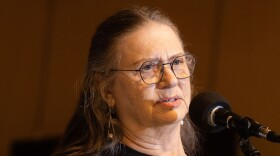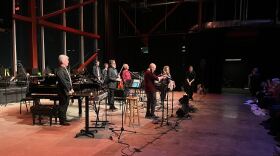The problems facing incarcerated people often don’t end when they are released. People who serve time in prison can face discrimination when looking for housing or a job, and the stigma of going to prison can make it difficult to reestablish ties in their community.
That’s why Pastor Joseph Ellwanger decided to found Project Return. Forty years ago, his congregation was looking for ways to better their neighborhood and found that formerly incarcerated people returning to their community needed help overcoming prejudice and regaining a sense of worth. One of those people was Rodney Evans, who is now the president of the corporate board of Project Return.
Ellwanger says there are three major steps they hope to help every formerly incarcerated person through. “To help them find a job, and then secondly, housing, and then thirdly, some support, giving them the certainty that there are people around them that are going to be there if they need some assistance,” he says.
That support can be crucial because people who spend time in prison often feel a loss of identity when they are released and attempting to rejoin their community. Evans describes feeling like people didn’t understand he was trying to better himself as a person.
“That I needed to pay for whatever I was doing time for, for the rest of my life and just, I was no longer referred to as Rodney. I was all kinds of other names, you know, offender. I had to go see a PO and I was a number,” says Evans. “Eventually what it did, it started to, I started to believe that stuff about myself.”
Evans was referred to Project Return after being arrested again. That's when someone finally made him feel like he wasn’t just a number in the criminal justice system.
“They treated me like I was no different from one of them. So even in my mind, I thought that I was less than, they treated me like I was one of them and eventually the love that they continued to show me took away my options to go back to where I was and then it started to build me up to see a whole different side of life,” says Evans.
Ellwanger and Evans both point out that the system does not make reentry easy. The system of mass incarceration profits off of having people in the prison so that contractors can sell things like razors, food, or other products to prisons and that more jobs can be filled at these prisons. So, many people are sent back to prison not for committing new crimes but for breaking rules set for people who were recently released from prison.
“The failure to make it in reentry is what feeds mass incarceration in Wisconsin and in this country,” says Ellwanger.
Project Return is celebrating its 40th year of creating a healthier Milwaukee by keeping people in the community and out of prison. Learn more about Project Return's work at its upcoming virtual gala on Oct. 27.







